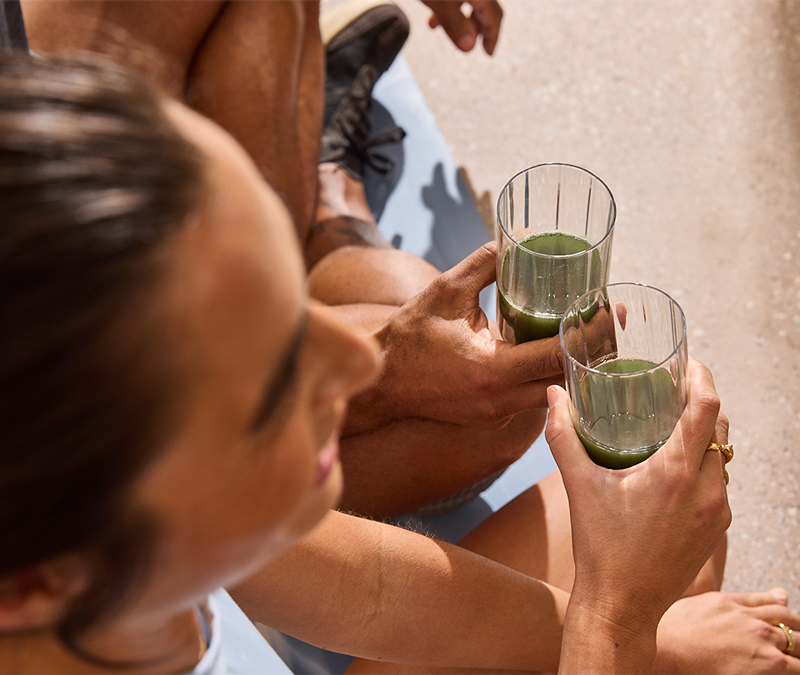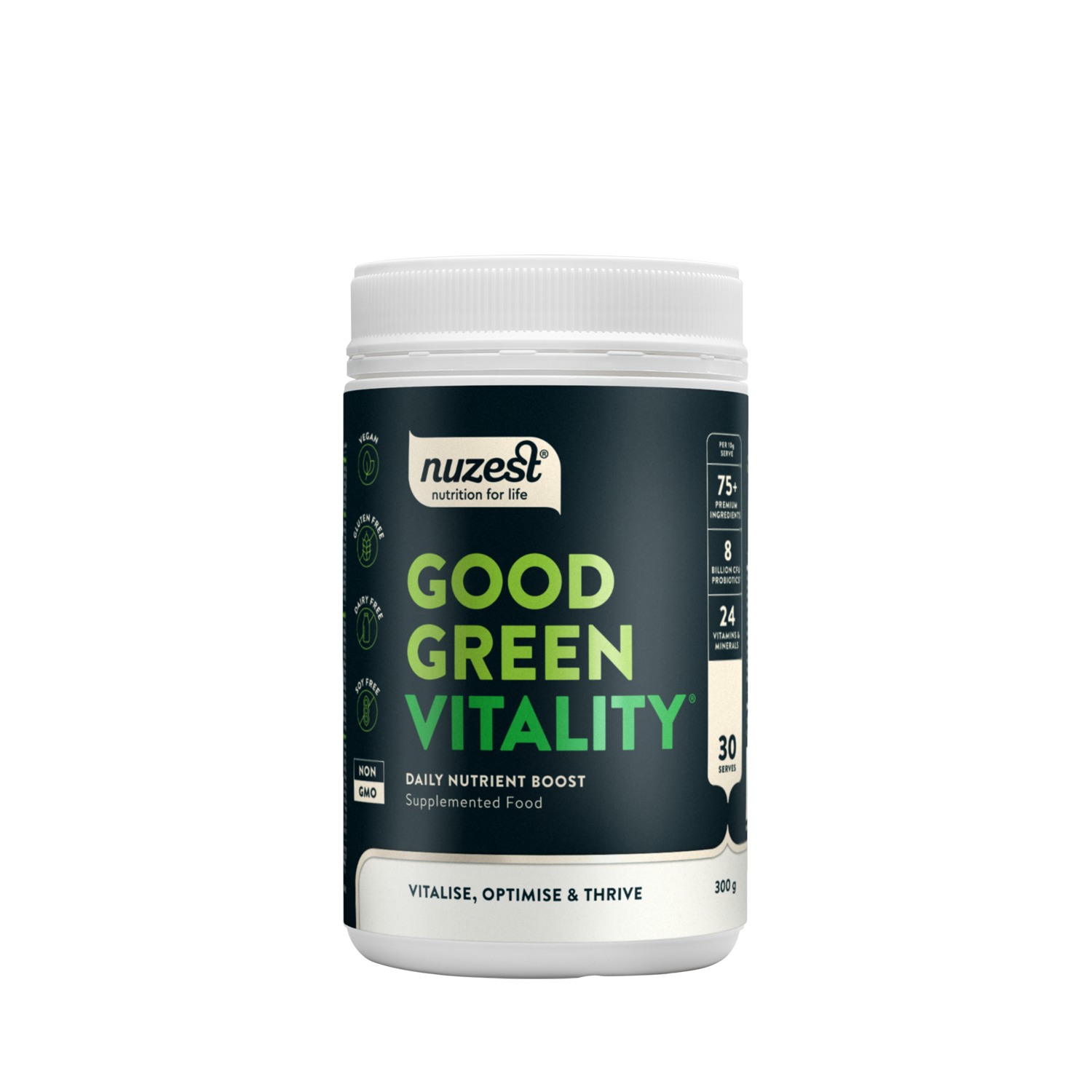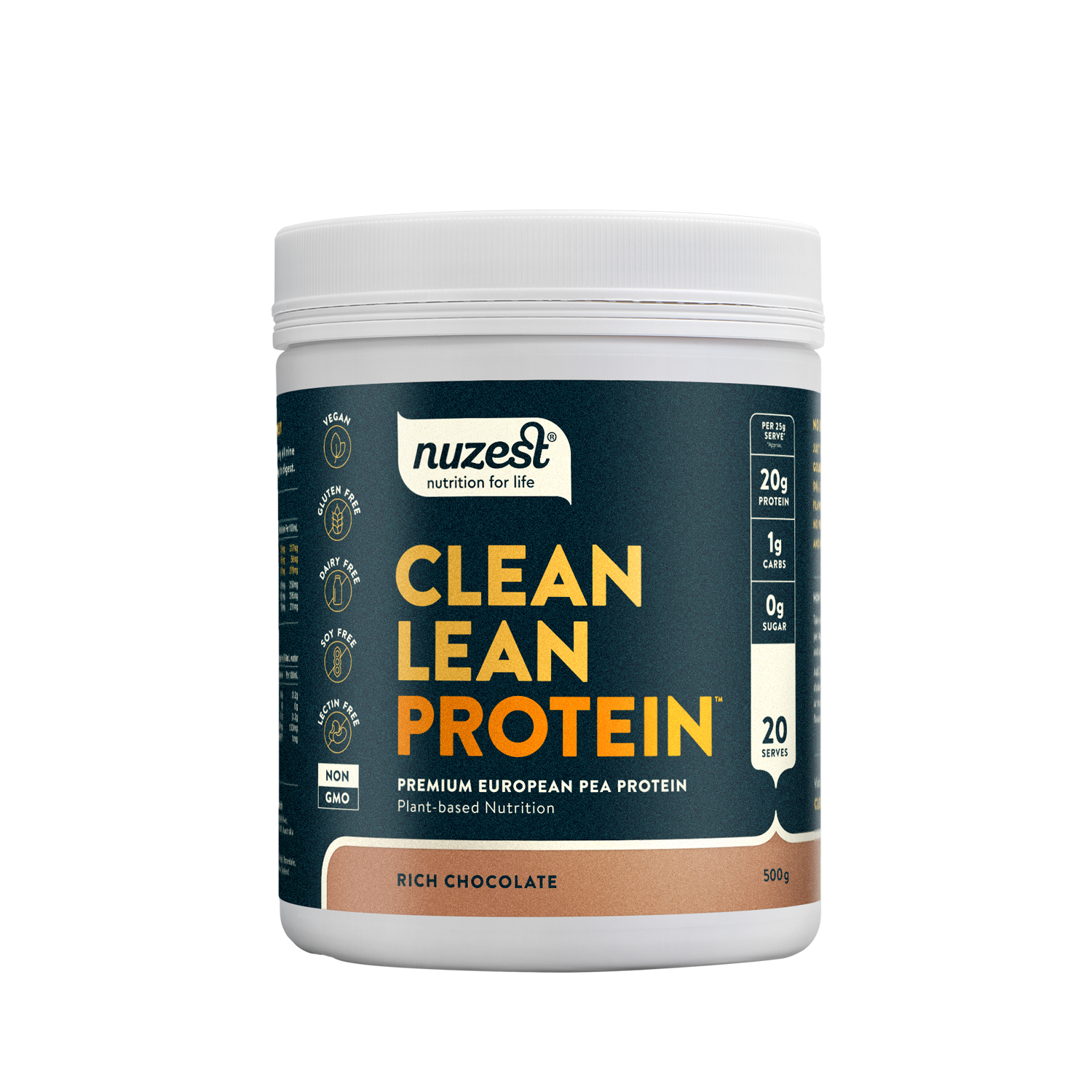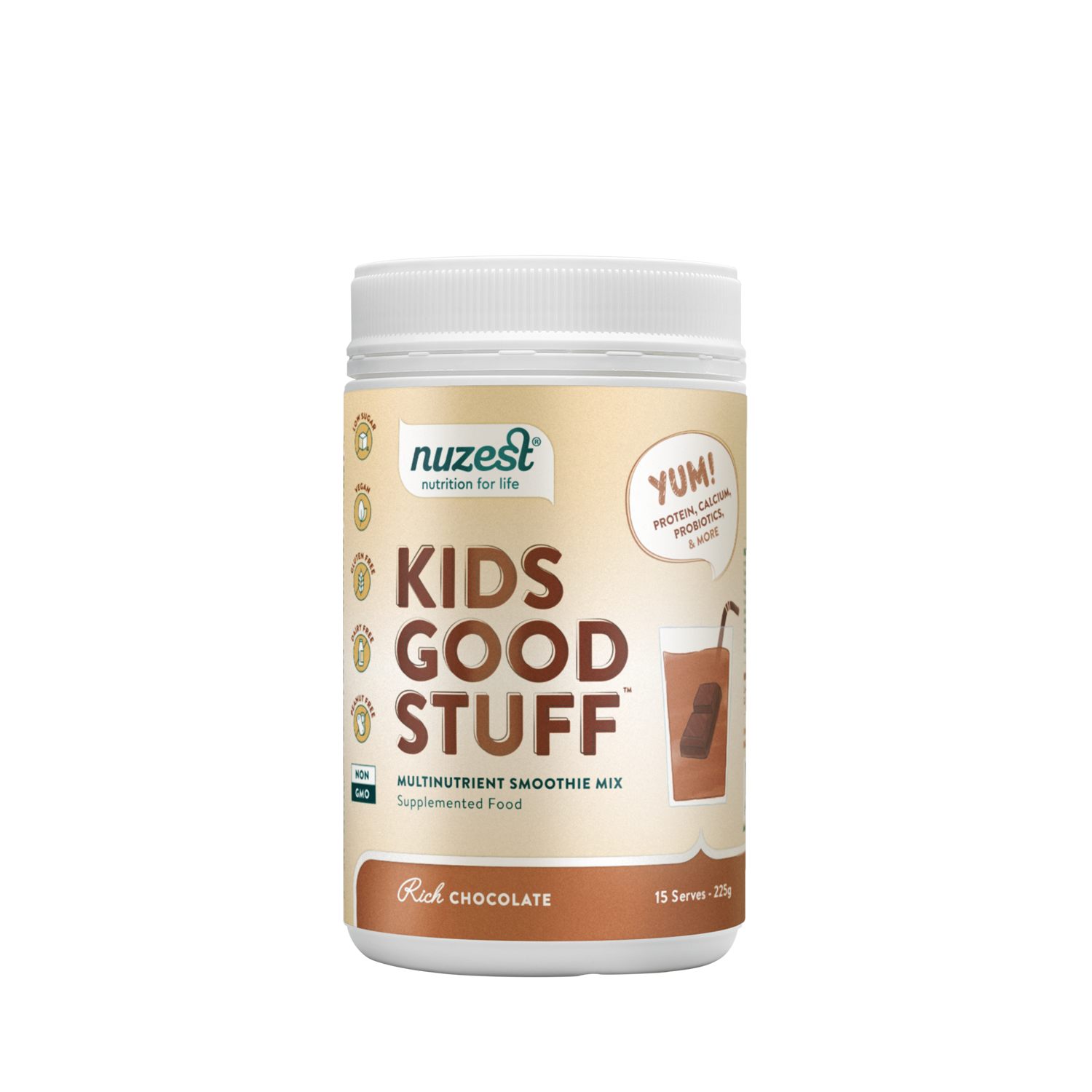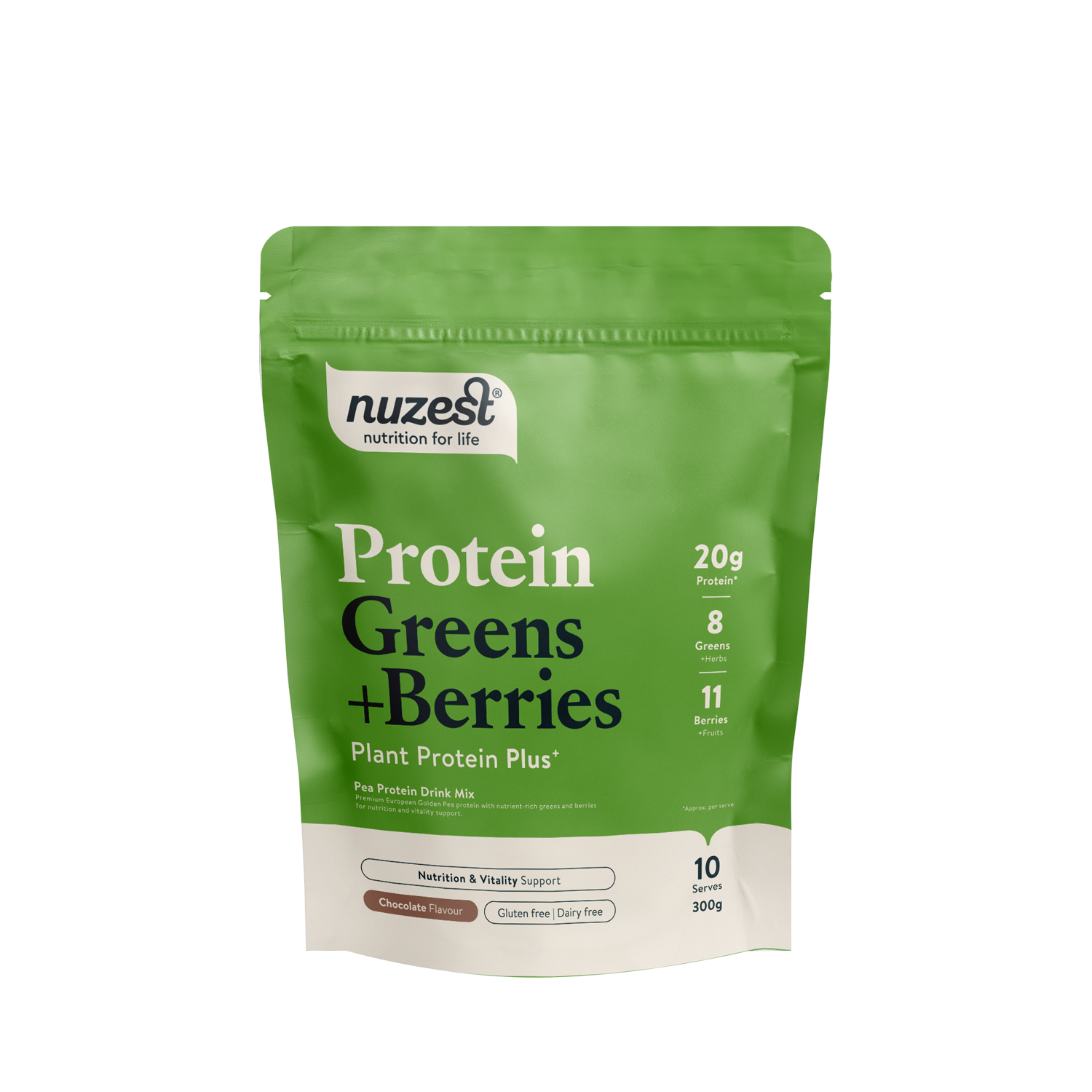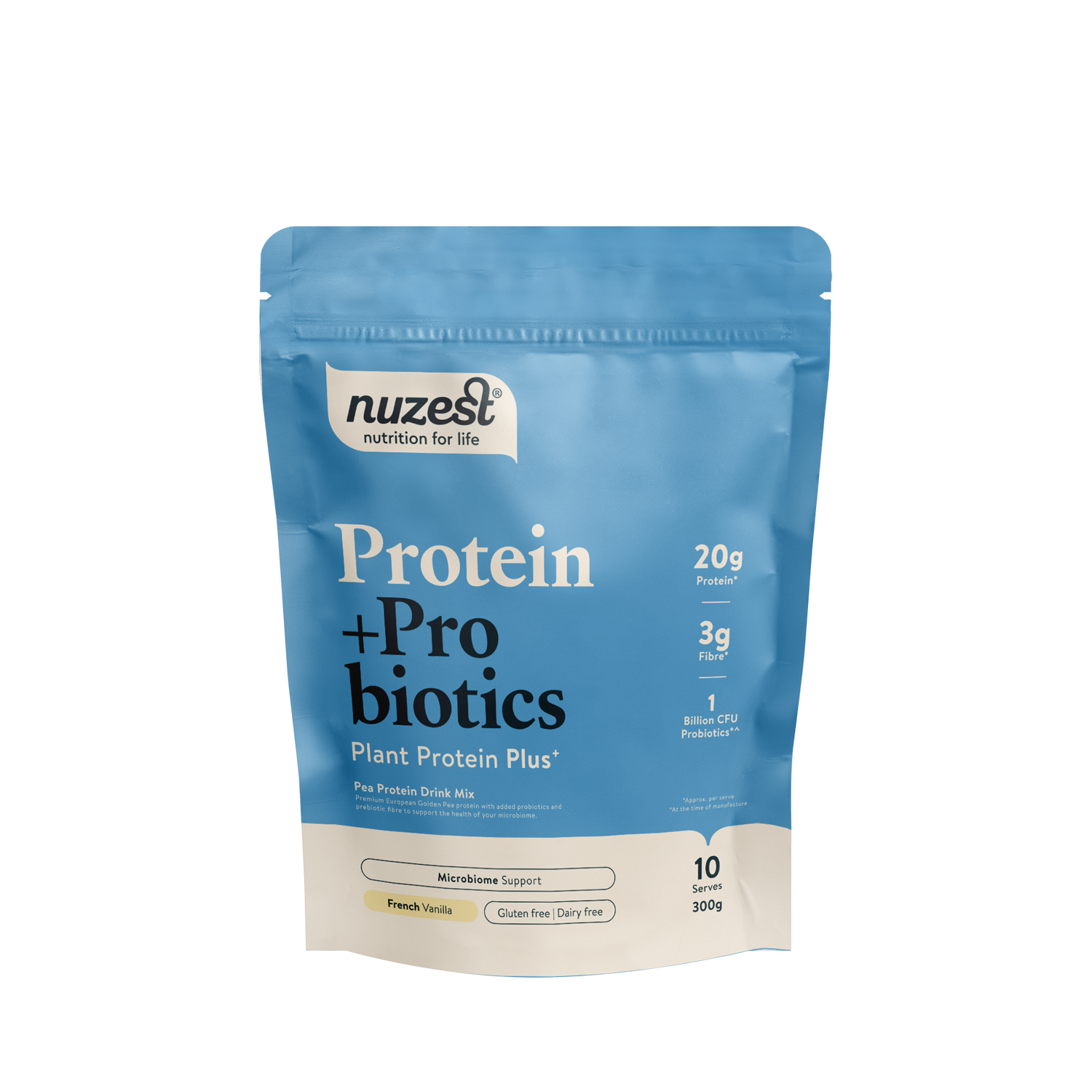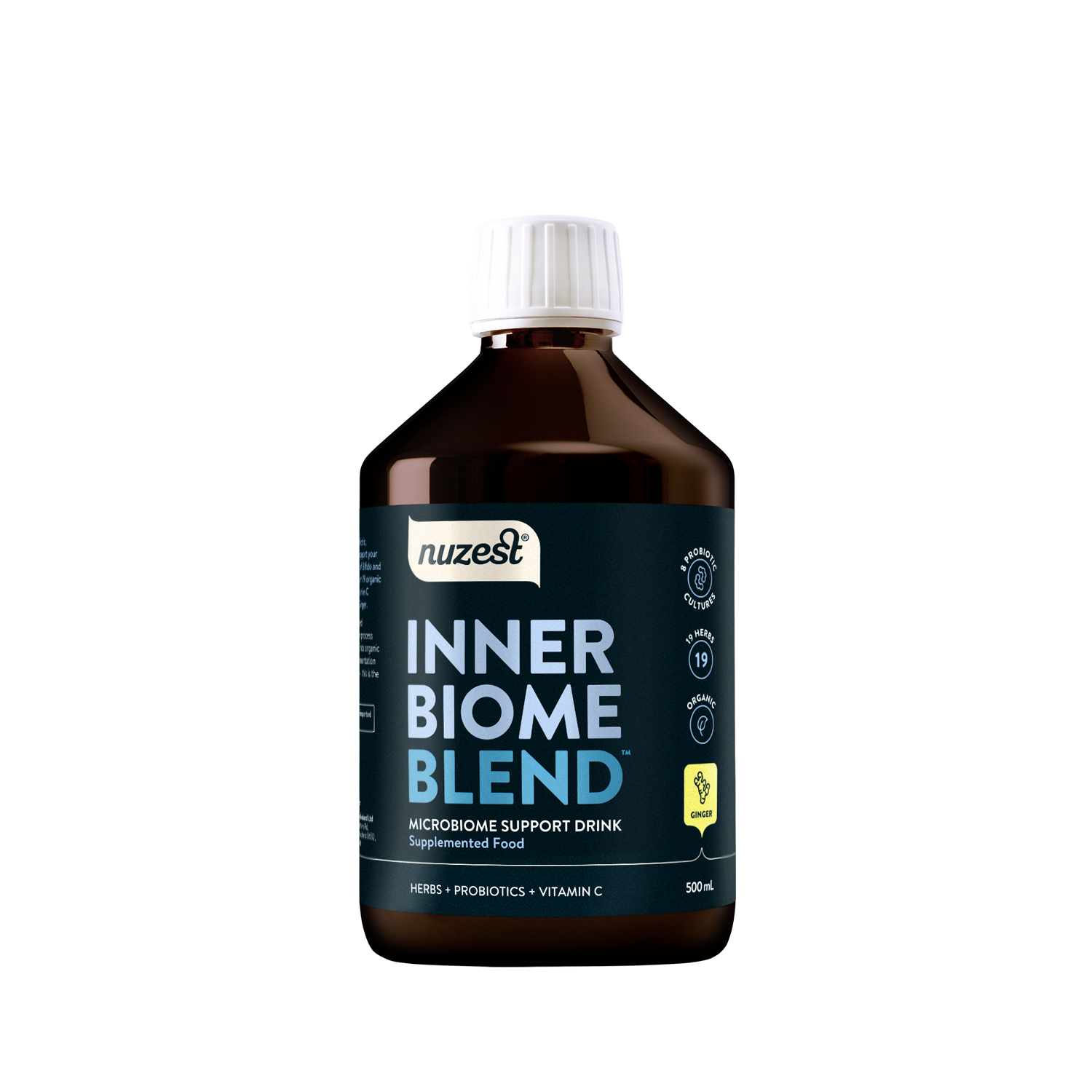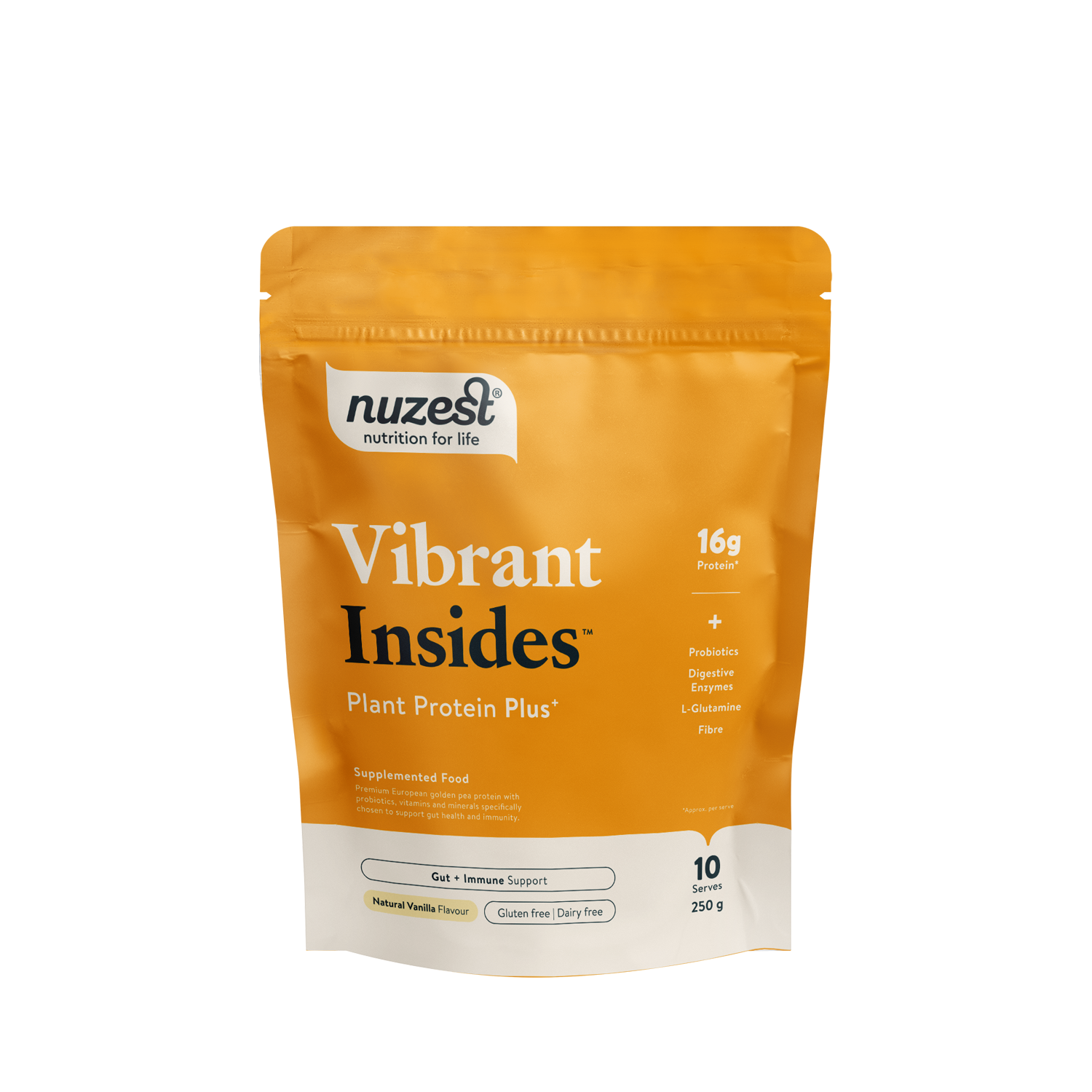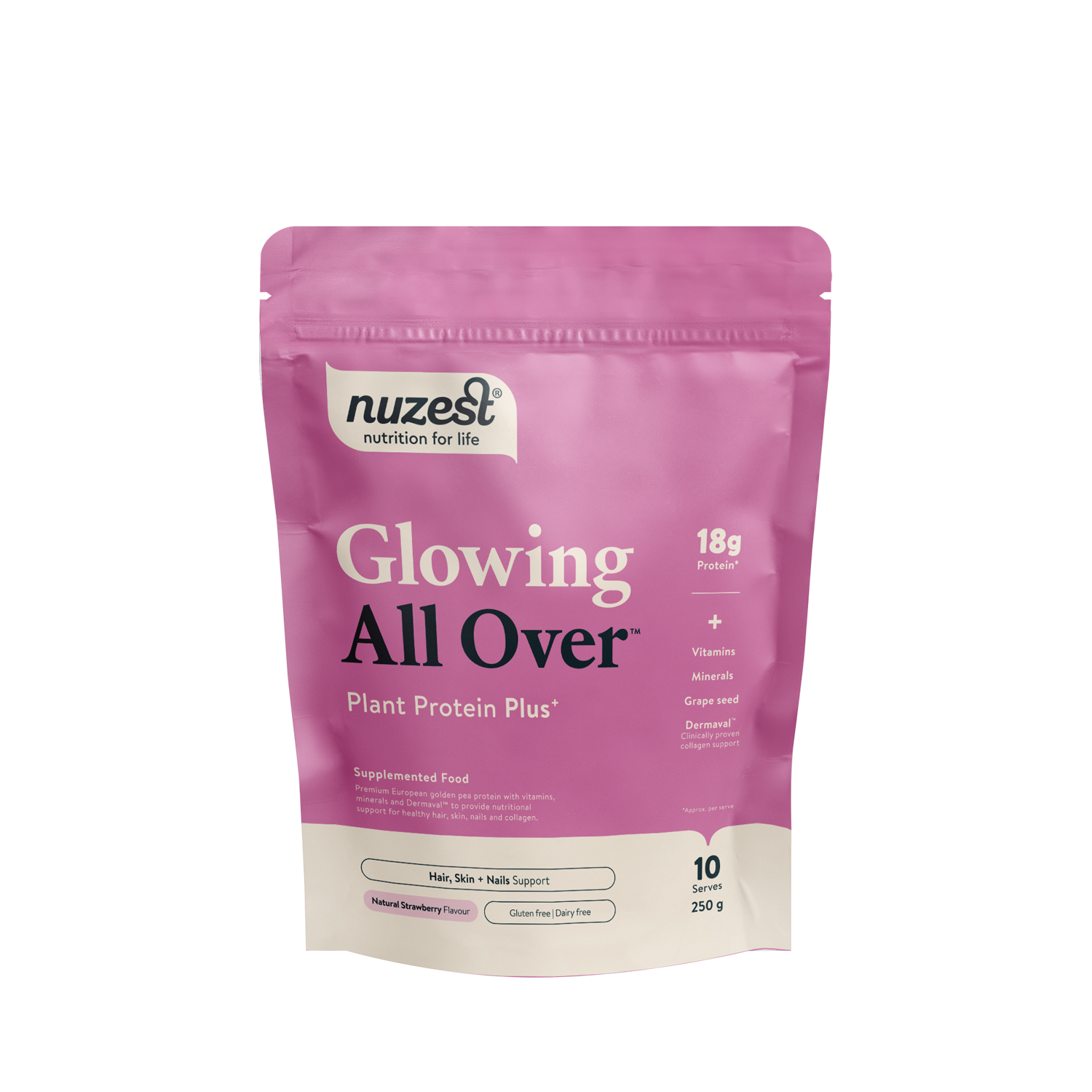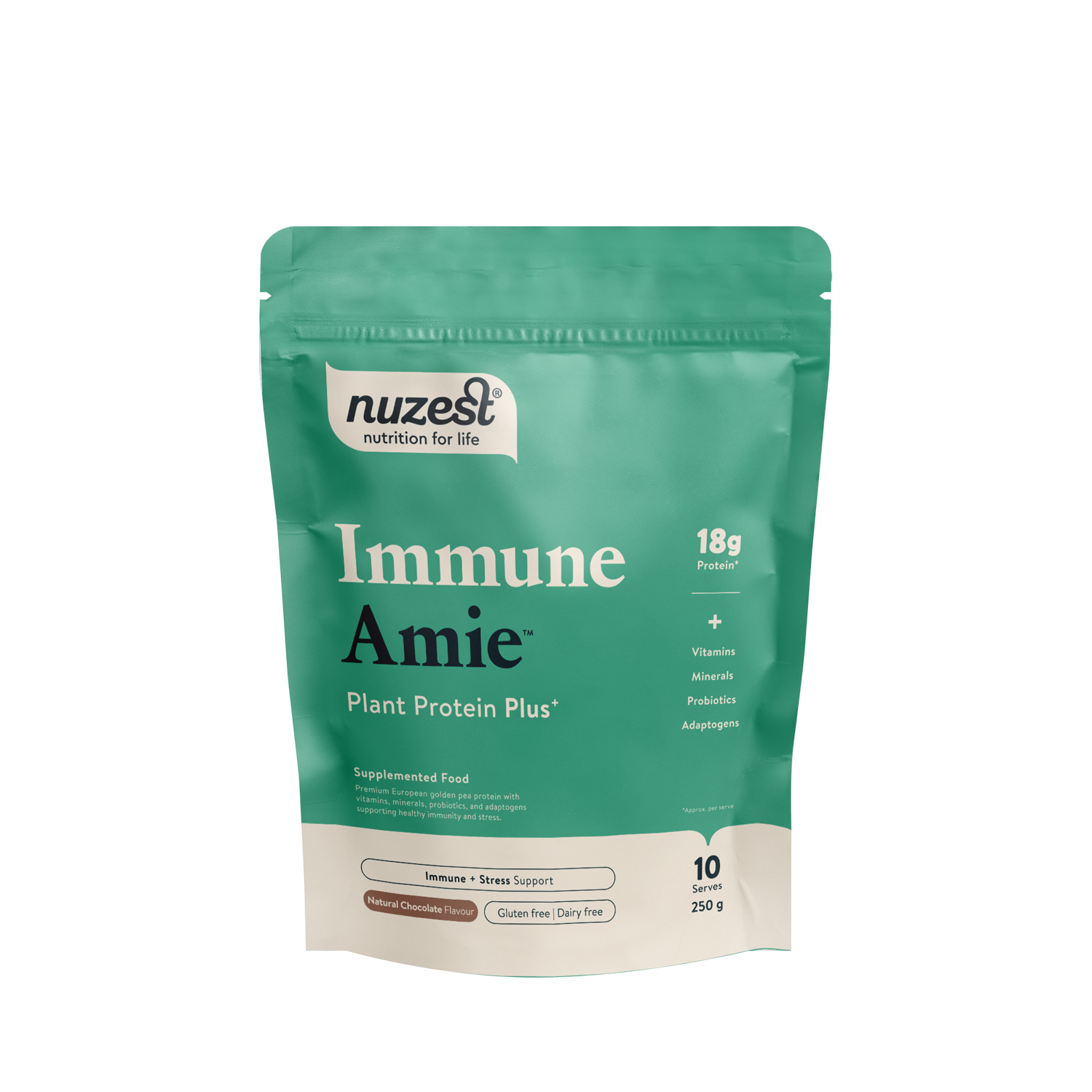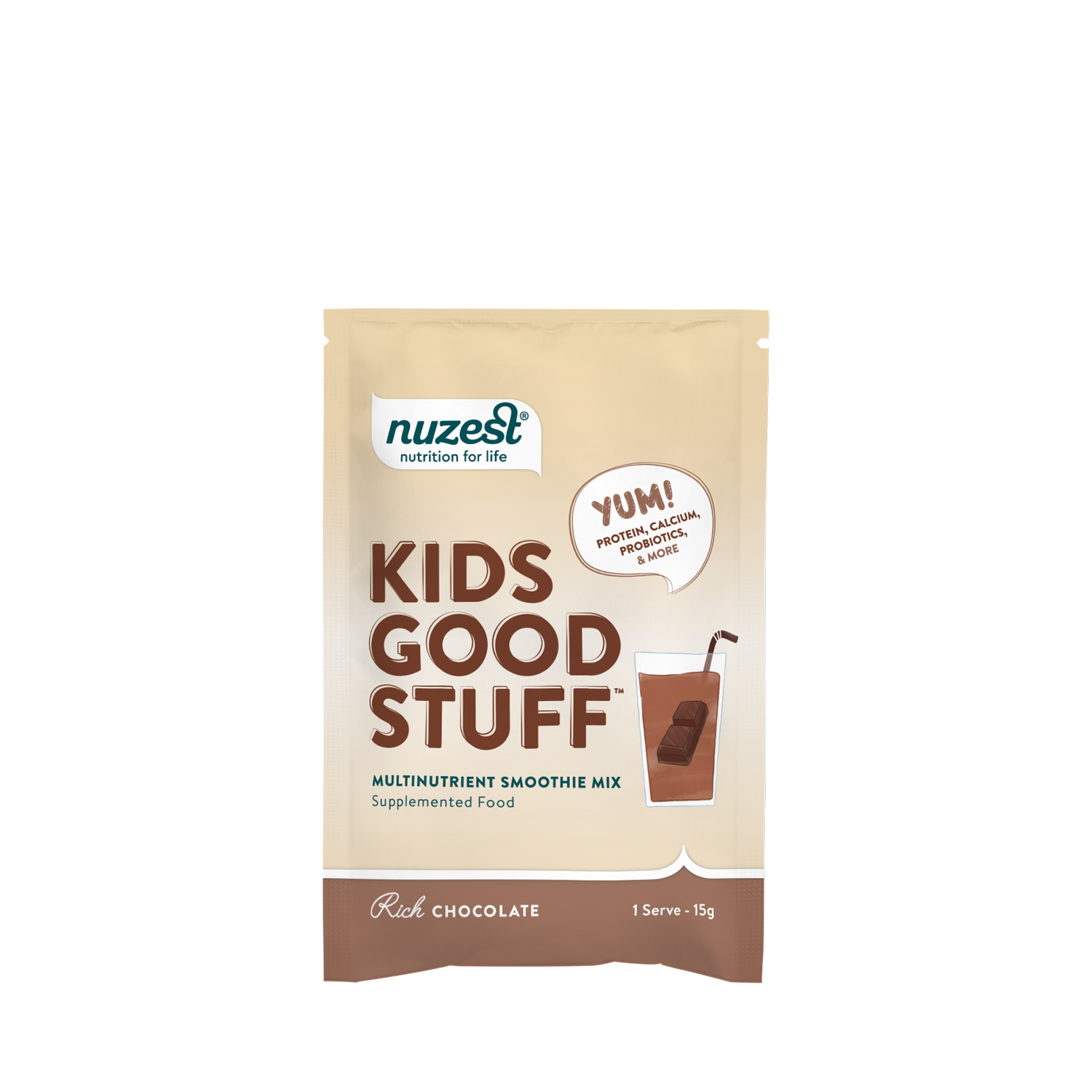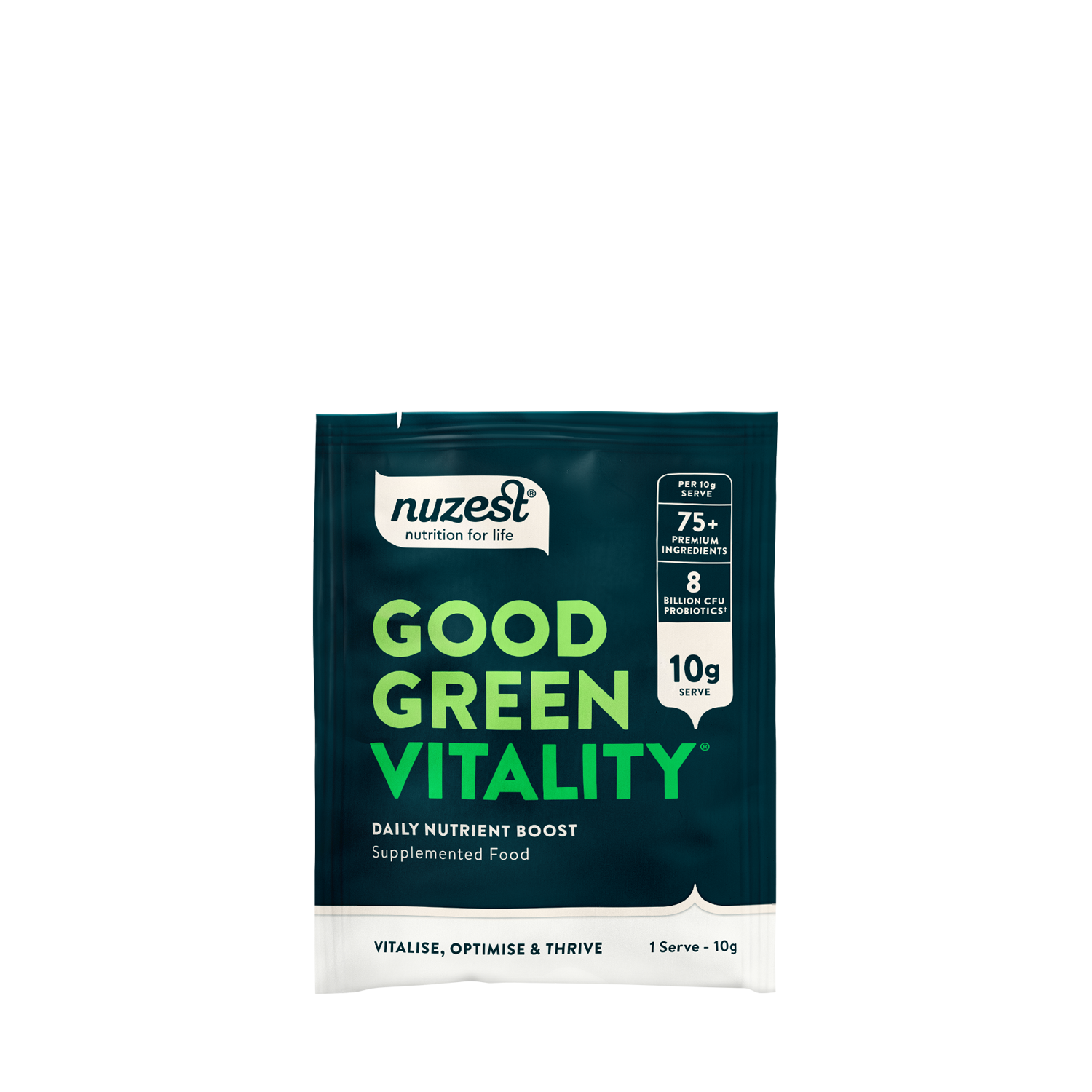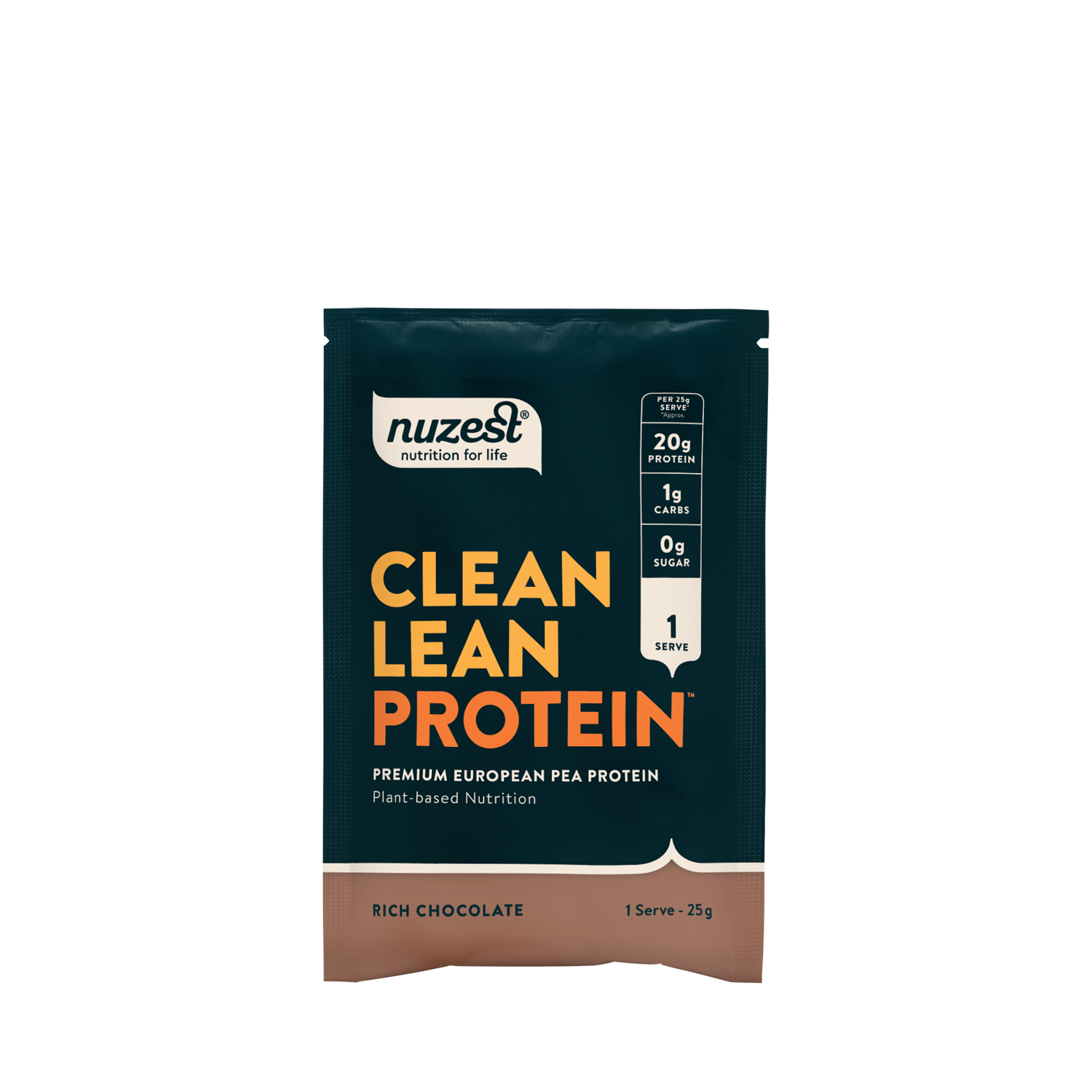Probiotics vs. Prebiotics
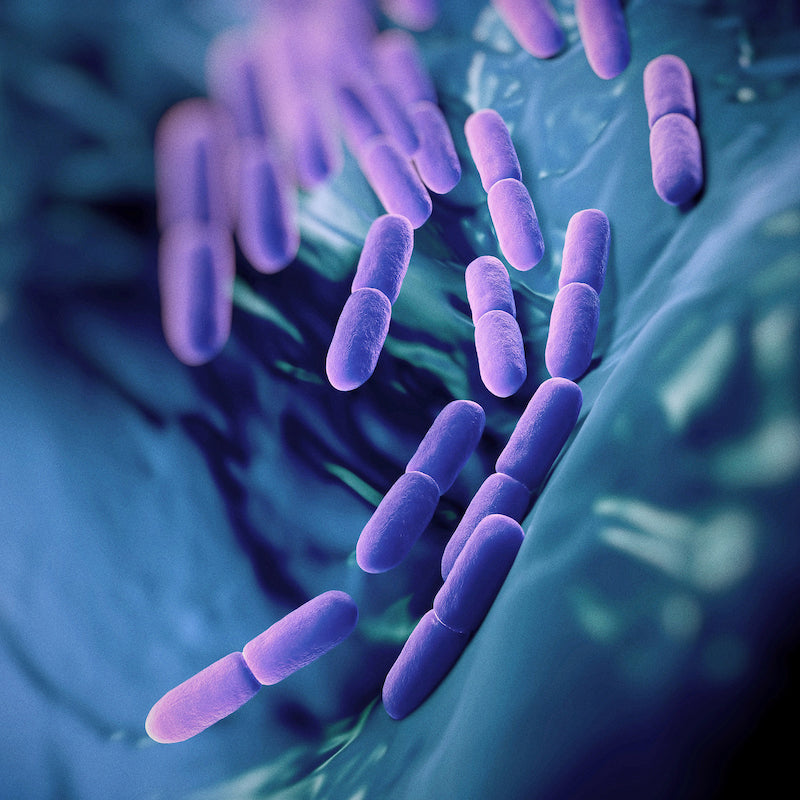
Unleash gut health with probiotics and prebiotics! Strengthen digestion, immunity, and overall well-being. Try Nuzest's Good Green Vitality for convenient support with 8 billion CFU of probiotics. Take charge now!
Author: Megan Jones (Adv.Dip.NutMed, BHsc.NutMed)
Despite many of us assuming bacteria, along with other microorganisms such as archaea, fungi and viruses are harmful ‘germs’, the majority of these bugs inhabiting our gut microbiome are in fact harmless. Research states that a diverse and balanced microbiome is fundamental for our health and wellbeing.1
Fun fact: Our gut is home to trillions of bacteria and other microbial cells – this total in our gut actually exceeds the total number of human cells in our body2 - a thought which can leave some of us feeling a little squeamish!
Both probiotics and prebiotics have gained a lot of attention in the nutrition space over the last 10 - 15 years and although sounding similar and both playing important roles in restoring the normal gut flora while helping the good bacteria flourish, they both serve very different functions and work in very different ways.3 In this article, we'll dive into the world of pre and probiotics, shedding light on their benefits, sources, and how to incorporate them into your daily nutrition.
Hint: Nuzest’s daily multi nutrient formula Good Green Vitality contains many prebiotic fibres such as those in beta glucans, cacao bean, globe artichoke, barley grass, wheat grass, broccoli sprout, carrot, ginger, psyllium husk, beetroot, slippery elm and apple pectin powder. Good Green Vitality also contains both probiotic species Bifidobacterium bifidum and Lactobacillus acidophilus totalling 8 billion colony forming units (CFU) of these probiotics per serve.
Key takeaways:
- Probiotics are beneficial bacteria and yeasts populating our gut microbiome which promote a balanced and diverse microbial environment.3
- Probiotics play a key role in supporting digestive health, bolstering our immune system, and potentially influencing many other aspects of our overall health and wellbeing.4
- Antibiotics, as opposed to probiotics, are considered essential for treating serious bacterial infections, however, excessive use can contribute to the development of antibiotic-resistant bacteria, making infections more difficult to treat and posing a serious public health threat.5
- Frequent use of antibiotics may increase the risk of allergies and certain chronic conditions, as evidence suggests a link between alterations in the gut microbiome and various immune-related disorders.6
- Prebiotics are non-digestible fibres and compounds found in certain foods that serve as nourishment for the beneficial bacteria residing in our gut – acting as a source of sustenance for these 'good' gut bacteria, supporting their growth and activity.7
What are Probiotics?
Did you know that just like our cars need fuel to drive, our gut microbes (‘bugs’) actually require constant nourishment to grow and defend our bodies against disease and infection?8
In fact, according to research, a healthy balance between us, the ‘host’ and our gut microorganisms must be maintained in order to achieve normal physiological, metabolic, and immune functions; as well as to prevent disease development.9
Stemming from the Greek words ‘pro bios’ meaning ‘for life’, probiotic bacteria, aka ‘probiotics’ contain these live and beneficial microorganisms which colonise our digestive system.10 These friendly gut bugs are able to not only compete with ‘bad’ and harmful microbes but have even been studied for their anti-obesity, anti-diabetic, and anti-cancer activity within the gut.11
While the term ‘probiotics’ essentially refers to ‘life’, and probiotics are used preventatively, ‘antibiotics’ are in fact the opposite12 - an antibiotic by definition is a substance that either prevents the growth of or kills a living organism.13
Due to the overuse of antibiotics and also of antibacterial soaps and detergents, antimicrobial resistance has become a serious threat to global public health.14 The reason being, every time we use antimicrobial compounds that are designed to kill bacteria, the bacteria respond by getting tougher and more aggressive, ultimately becoming resistant to the antibiotic or to the antimicrobial treatment.
While antibiotics are essential for fighting stubborn bacterial infections, antibiotic exposure not only creates resistance, but also dramatically and negatively alters gut microbiota.15
With this in mind, the question we ask is how can we promote probiotic activity for our gut microbes to flourish, and to mitigate any negative side effects of antibiotic therapy? Interestingly, and according to research, probiotic use alongside antibiotic treatment contributes to better adherence to the antibiotic prescription and thereby reduces the evolution of resistance!16
How to include more probiotics in your diet:
- Yogurt: A delicious and popular choice, yogurt contains live active cultures that provide a significant dose of probiotics.
- Kefir: This fermented milk drink containing live active cultures can be enjoyed on its own or added to smoothies. Why not try 2 scoops of Nuzest’s Clean Lean Protein Smooth Vanillawith ½ cup of kefir (containing over 12 CFU per ½ cup serve), a handful of berries, a handful of spinach and some avocado for a creamy, nutrient-dense smoothie boosted with probiotic activity?
- Sauerkraut: Fermented cabbage is a rich source of probiotics that can be used as a topping or side dish.
- Kimchi: A Korean staple, kimchi is a spicy fermented vegetable dish that is high in probiotic content, containing approximately 2.6 billion CFU per ½ cup serving.
Nuzest’s Good Green Vitality: One daily serve contains 75+ wholefood-based ingredients, including 8 billion CFU of probiotics, both of the Lactobacillus and Bifidobacterium species!
What are Prebiotics?
Prebiotics are a type of dietary fibre we eat that serve as nourishment or ‘food’ for the beneficial bacteria already present in our gut. We like to think of them as the fuel that helps our gut flora thrive, enabling them to carry out their important functions more efficiently.7
It is due to their fibrous quality that prebiotics are either semi digestible or not digestible at all. When they pass through the gastrointestinal tract undigested, they stimulate the growth and activity of specific ‘good’ bacteria in the large intestine.18
By consuming prebiotics, we are essentially providing the necessary sustenance for our probiotics, promoting a healthy gut environment and returning balance to our microbiome.19
How to Include More Prebiotics in Your Diet:
- Flaxseed: The soluble, mucilage fibre in flaxseeds promotes healthy gut bacteria - with 2 tablespoons of flaxseed containing around 6g of fibre.20
- Chicory Root: This versatile ingredient from the dandelion family can be found in prebiotic supplements for its inulin content and is commonly added to foods as a fibre supplement.21
- Garlic: Not only does garlic add flavour to your dishes, but it also contains prebiotic compounds such as inulin that help maintain a balanced gut environment.22
- Onion: Onions, particularly the red variety, are packed with prebiotics like inulin and fructo-oligosaccharides (FOS) that stimulate the growth of beneficial gut bacteria.23
- Asparagus: These nutritious spears are not only a great addition to your dinner plate but also a rich source of prebiotics.24
As you can see by our wholefood recommendations, diversity and balance are key markers of our gut microbiome health. A wide variety of wholefoods with the right nutrient supplementation such as Good Green Vitality can provide our gut with both the probiotics and the prebiotic fibres required for optimal digestion and overall health!
References:
- Hills RD, Pontefract BA, Mishcon HR, Black CA, Sutton SC, Theberge CR. Gut Microbiome: Profound Implications for Diet and Disease. Nutrients [Internet]. 2019 Jul 16;11(7):1613. Available from: https://www.ncbi.nlm.nih.gov/pmc/articles/PMC6682904/
- Sender R, Fuchs S, Milo R. Revised Estimates for the Number of Human and Bacteria Cells in the Body. PLOS Biology. 2016 Aug 19;14(8):e1002533.
- Markowiak P, Śliżewska K. Effects of Probiotics, Prebiotics, and Synbiotics on Human Health. Nutrients [Internet]. 2017 Sep 15;9(9):1021. Available from: https://www.ncbi.nlm.nih.gov/pmc/articles/PMC5622781/
- Maldonado Galdeano C, Cazorla S, Lemme Dumit J, Vélez E, Perdigón G. Beneficial Effects of Probiotic Consumption on the Immune System. Annals of Nutrition and Metabolism [Internet]. 2019;74(2):115–24. Available from: https://www.karger.com/Article/FullText/496426
- Ouwehand AC, Forssten S, Hibberd AA, Lyra A, Stahl B. Probiotic approach to prevent antibiotic resistance. Annals of Medicine. 2016 Mar 26;48(4):246–55.
- Patangia DV, Anthony Ryan C, Dempsey E, Paul Ross R, Stanton C. Impact of antibiotics on the human microbiome and consequences for host health. MicrobiologyOpen. 2022 Jan 13;11(1).
- Davani-Davari D, Negahdaripour M, Karimzadeh I, Seifan M, Mohkam M, Masoumi S, et al. Prebiotics: Definition, Types, Sources, Mechanisms, and Clinical Applications. Foods [Internet]. 2019 Mar 9;8(3):92. Available from: https://www.ncbi.nlm.nih.gov/pmc/articles/PMC6463098/
- Linares DM, Ross P, Stanton C. Beneficial Microbes: The pharmacy in the gut. Bioengineered [Internet]. 2015 Dec 28;7(1):11–20. Available from: https://www.ncbi.nlm.nih.gov/pmc/articles/PMC4878258/
- Dahiya D, Nigam PS. The Gut Microbiota Influenced by the Intake of Probiotics and Functional Foods with Prebiotics Can Sustain Wellness and Alleviate Certain Ailments like Gut-inflammation and Colon-Cancer. Microorganisms. 2022 Mar 20;10(3):665.
- Gasbarrini G, Bonvicini F, Gramenzi A. Probiotics History. Journal of Clinical Gastroenterology [Internet]. 2016;50:S116–9. Available from: https://journals.lww.com/jcge/fulltext/2016/11001/probiotics_history.3.aspx
- Das TK, Pradhan S, Chakrabarti S, Mondal KC, Ghosh K. Current status of probiotic and related health benefits. Applied Food Research [Internet]. 2022 Dec 1;2(2):100185. Available from: https://www.sciencedirect.com/science/article/pii/S2772502222001457
- Nami Y, Haghshenas B, Abdullah N, Barzegari A, Radiah D, Rosli R, et al. Probiotics or antibiotics: future challenges in medicine. Journal of Medical Microbiology [Internet]. 2015 Feb 1 [cited 2021 Sep 11];64(Pt 2):137–46. Available from: https://www.ncbi.nlm.nih.gov/pubmed/25525206
- Nami Y, Haghshenas B, Abdullah N, Barzegari A, Radiah D, Rosli R, et al. Probiotics or antibiotics: future challenges in medicine. Journal of Medical Microbiology [Internet]. 2015 Feb 1 [cited 2021 Sep 11];64(Pt 2):137–46. Available from: https://www.ncbi.nlm.nih.gov/pubmed/25525206
- Browne AJ, Chipeta MG, Haines-Woodhouse G, Kumaran EPA, Hamadani BHK, Zaraa S, et al. Global antibiotic consumption and usage in humans, 2000–18: a spatial modelling study. The Lancet Planetary Health. 2021 Dec;5(12):e893–904.
- Schwartz DJ, Langdon AE, Dantas G. Understanding the impact of antibiotic perturbation on the human microbiome. Genome Medicine. 2020 Sep 28;12(1).
- Ouwehand AC, Forssten S, Hibberd AA, Lyra A, Stahl B. Probiotic approach to prevent antibiotic resistance. Annals of Medicine. 2016 Mar 26;48(4):246–55.
- Roberfroid M, Gibson GR, Hoyles L, McCartney AL, Rastall R, Rowland I, et al. Prebiotic effects: metabolic and health benefits. British Journal of Nutrition. 2010 Aug;104(S2):S1–63.
- Carlson JL, Erickson JM, Lloyd BB, Slavin JL. Health Effects and Sources of Prebiotic Dietary Fiber. Current Developments in Nutrition [Internet]. 2018 Jan 29;2(3). Available from: https://academic.oup.com/cdn/article/2/3/nzy005/4828321
- Li C, Niu Z, Zou M, Liu S, Wang M, Gu X, et al. Probiotics, prebiotics, and synbiotics regulate the intestinal microbiota differentially and restore the relative abundance of specific gut microorganisms. Journal of Dairy Science. 2020 Jul;103(7):5816–29.
- Parikh M, Maddaford TG, Austria JA, Aliani M, Netticadan T, Pierce GN. Dietary Flaxseed as a Strategy for Improving Human Health. Nutrients [Internet]. 2019 May 25;11(5):1171. Available from: https://www.ncbi.nlm.nih.gov/pmc/articles/PMC6567199/
- Fouré M, Dugardin C, Foligné B, Hance P, Cadalen T, Delcourt A, et al. Chicory Roots for Prebiotics and Appetite Regulation: A Pilot Study in Mice. Journal of Agricultural and Food Chemistry [Internet]. 2018 Jun 27;66(25):6439–49. Available from: https://pubmed.ncbi.nlm.nih.gov/29873488/
- Sunu P, Sunarti D, Mahfudz LD, Yunianto VD. Prebiotic activity of garlic (Allium sativum) extract on Lactobacillus acidophilus. Veterinary World [Internet]. 2019 Dec 1 [cited 2021 Nov 16];12(12):2046–51. Available from: https://www.ncbi.nlm.nih.gov/pmc/articles/PMC6989317/
- Carine Raddatz G, Sonza Pinto V, Queiroz Zepka L, Smanioto Barin J, José Cichoski A, de Bona da Silva C, et al. Use of red onion (Allium cepa L.) residue extract in the co-microencapsulation of probiotics added to a vegan product. Food Research International [Internet]. 2022 Nov 1 [cited 2023 Jul 10];161:111854. Available from: https://www.sciencedirect.com/science/article/abs/pii/S0963996922009127
- Hamdi A, Viera-Alcaide I, Guillén-Bejarano R, Rodríguez-Arcos R, Muñoz MJ, Monje Moreno JM, et al. Asparagus Fructans as Emerging Prebiotics. Foods. 2022 Dec 23;12(1):81.
